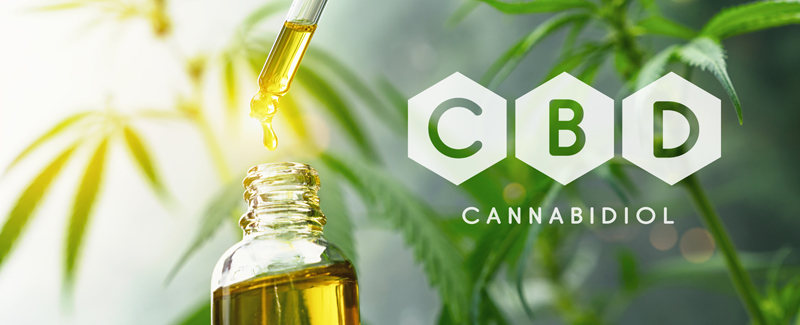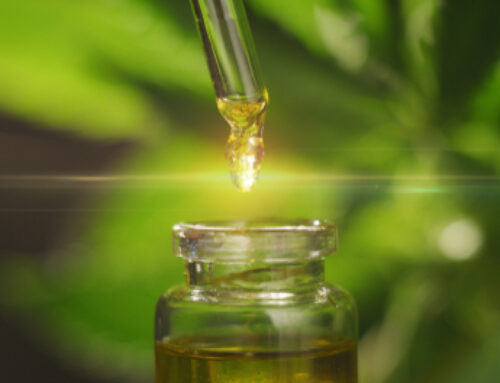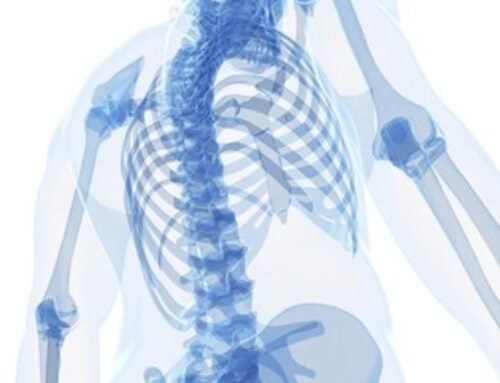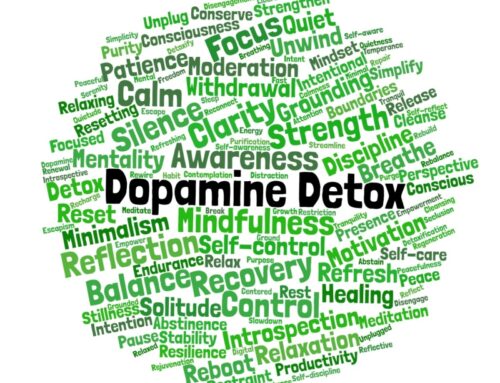The holidays are supposed to be a time of great joy, peace, and love. The happiest season of all. However, for many the holidays can bring some of the most difficult days of the year. Depression, stress, and anxiety often come with the holidays like cookies and decorations. These feelings are the most common psychological disorders affecting Americans. With over 40 million adults (18% of the US population) stating that these conditions are a part of their life, it is no wonder that “Big Pharma” has developed numerous drugs to treat depression and anxiety-related disorders. From selective serotonin reuptake inhibitors (SSRIs) like Prozac and Zoloft to tranquilizers (the most popular class being benzodiazepines such as Valium and Xanax) Big Pharma is all too willing to provide a pill to alleviate the symptoms of depression and anxiety. While these drugs can be effective for many patients, some don’t respond favorably. Certain patients don’t see much improvement, or they can’t tolerate the side effects. Moreover, tranquilizers like Valium and Xanax can be highly addictive. Clearly, alternative treatments are warranted.
Treatments For Depression and Anxiety
Since a combination of biological, psychological, and social factors can cause depression and anxiety, there is no straightforward treatment or cure. Maintaining a healthy lifestyle is important. Eliminate stressors, add some quiet time to your routine, exercise regularly to boost endorphins, eat nutritious and balanced meals, and sleep 7 to 9 hours each day.
A new treatment for depression and anxiety that has been receiving more and more attention is CBD oil. CBD oil is derived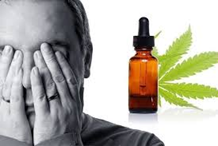 from the hemp or cannabis plant family. The cannabinoids in CBD oil are known to exert sedative, antidepressant, and antipsychotic effects on consumers. Could cannabidiol (CBD), the most prominent non-intoxicating constituent in cannabis, provide a viable alternative for currently available anxiety medications?
from the hemp or cannabis plant family. The cannabinoids in CBD oil are known to exert sedative, antidepressant, and antipsychotic effects on consumers. Could cannabidiol (CBD), the most prominent non-intoxicating constituent in cannabis, provide a viable alternative for currently available anxiety medications?
Quite possibly! Numerous animal studies and accumulating evidence from human experimental, clinical, and epidemiological studies suggest CBD has powerful anti-anxiety properties. Administered acutely (“as needed”), it appears safe, well-tolerated, and may be beneficial to treat a number of depression and anxiety-related disorders, including:
- Panic disorder
- Obsessive Compulsive Disorder (OCD)
- Social phobia
- Post-Traumatic Stress Disorder (PTSD)
- Generalized Anxiety Disorder (GAD)
- Mild to moderate depression
How Does CBD Work?
CBD exerts several actions in the brain that explain why it could be effective in treating anxiety.
5-HT1A agonist: 5-HT1A is a subtype of the serotonin receptor, which is important because anxiety and depression can sometimes be treated with medications that target the serotonin system. Similar to selective serotonin reuptake inhibitors (SSRIs) like Prozac and Zoloft, CBD may boost signaling through serotonin receptors. In an animal study, Spanish researchers found that CBD enhances 5-HT1A transmission and may affect serotonin faster than SSRIs.
Hippocampal neurogenesis: The hippocampus is a major brain area and plays a role in memory formation and cognition. Brain scans of patients suffering from depression or anxiety often show a smaller hippocampus, and successful treatment of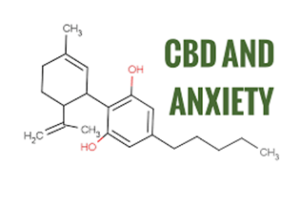 depression is associated with the birth of new neurons (neurogenesis) in the hippocampus. An animal study using mice found repeated administration of CBD may help the hippocampus regenerate neurons, which could be useful for treating anxiety or depression. Research shows both SSRIs and CBD may promote neurogenesis.
depression is associated with the birth of new neurons (neurogenesis) in the hippocampus. An animal study using mice found repeated administration of CBD may help the hippocampus regenerate neurons, which could be useful for treating anxiety or depression. Research shows both SSRIs and CBD may promote neurogenesis.
How Can CBD Help Anxiety?
Brazilian researchers conducted a small double-blind study of patients afflicted with generalized social anxiety. After consuming CBD, participants reported a significant decrease in anxiety. Researchers validated patients’ subjective reports by performing brain scans showing cerebral blood flow patterns consistent with an anti-anxiety effect. In another small study, researchers had patients suffering from Social Anxiety Disorder perform a simulated public speaking test. Participants reported significantly less anxiety, findings supported by objective anxiety indicators like heart rate and blood pressure.
Evidence from animal studies have begun to characterize the details of how CBD acts in the brain, and human studies of patients with and without anxiety disorders are starting to validate CBD’s efficacy as an anti-anxiety treatment. Given the huge social and financial costs of anxiety disorders in the U.S., CBD has the potential to play a significant role in treating a myriad of depression and anxiety-related disorders. While more research is needed, CBD has demonstrated efficacy and a highly favorable safety profile (particularly when compared to currently available drugs) to make it a viable alternative or adjunct to currently available pharmaceuticals.
Those looking for more information on CBD oil may find our article “The ABCs of CBD Oil” helpful. In this article we answer the questions related to dosing recommendations, CBD oil for pain, and what forms of CBD oil are the best to take.
Other Supplements for Depression and Anxiety:
CBD oil is not the only supplement to aid those suffering with depression and anxiety. These supplements can be of additional help in this area:
![]() 5-HTP– the intermediate metabolite between the amino acid L-tryptophan and serotonin, is extracted from the seed of an African plant (Griffonia simplicifolia). It gives a calming effect allowing the brain to slow down but is not sedative in nature.
5-HTP– the intermediate metabolite between the amino acid L-tryptophan and serotonin, is extracted from the seed of an African plant (Griffonia simplicifolia). It gives a calming effect allowing the brain to slow down but is not sedative in nature.
![]() GABA– Gamma-Aminobutyric Acid) is a non-protein amino acid that functions as a neurotransmitter in the human brain. GABA is known as the brain’s own calming agent and is naturally produced in the body. By supporting a naturally balanced level of brain stimulation, GABA’s presence within the central nervous system may help promote relaxation and ease nervous tension.
GABA– Gamma-Aminobutyric Acid) is a non-protein amino acid that functions as a neurotransmitter in the human brain. GABA is known as the brain’s own calming agent and is naturally produced in the body. By supporting a naturally balanced level of brain stimulation, GABA’s presence within the central nervous system may help promote relaxation and ease nervous tension.
![]() Vitamin D3– Vitamin D is normally obtained from the diet or produced by the skin from the ultraviolet energy of the sun. However, it is not abundant in food. As more people avoid sun exposure, vitamin D supplementation becomes even more necessary to ensure that your body receives an adequate supply. Vitamin D deficiency has been linked to seasonal depression.
Vitamin D3– Vitamin D is normally obtained from the diet or produced by the skin from the ultraviolet energy of the sun. However, it is not abundant in food. As more people avoid sun exposure, vitamin D supplementation becomes even more necessary to ensure that your body receives an adequate supply. Vitamin D deficiency has been linked to seasonal depression.
![]() Essential Oils– The ability for many essential oils to calm the brain and reduce tension has been well known for centuries. Essential oils such as Lavender, Frankincense, Eucalyptus, and Vanilla are some of the most common to relieve stress, anxiety, and tension. If you’re looking for a pick me up during the fall and winter days, look to the citrus family of essential oils for help. These are often found singularly or in a blend such as, “Cheer Up Buttercup” and “Good Morning Sunshine”.
Essential Oils– The ability for many essential oils to calm the brain and reduce tension has been well known for centuries. Essential oils such as Lavender, Frankincense, Eucalyptus, and Vanilla are some of the most common to relieve stress, anxiety, and tension. If you’re looking for a pick me up during the fall and winter days, look to the citrus family of essential oils for help. These are often found singularly or in a blend such as, “Cheer Up Buttercup” and “Good Morning Sunshine”.
![]()
Daryl C. Rich, D.C., C.S.C.S.

